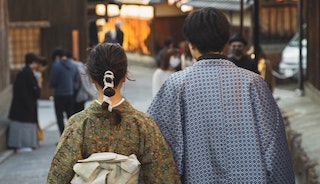TOKYO, Jan 26 (News On Japan) - In a candid roundtable discussion, college students working in night-time establishments like cabarets and clubs reveal the realities of their part-time jobs.

The convenience of working in the evening is highlighted as an advantage over daytime shifts, particularly for those with heavy course loads, such as nursing students. The participants, who prefer to keep their jobs while pursuing their degrees, discuss the financial benefits and the challenges of attracting customers. Despite some choosing to keep their work private due to potential stigma, the allure of earning well during one's youth is a common sentiment. The discussion also touches on the varying hourly wages across different types of establishments.
Here's a glimpse into the real-life part-time work scenarios of college students employed in the nightlife industry. These students find it easier to work in these establishments after school compared to regular evening shifts that start around 5 pm. Nursing students, in particular, are mentioned as a group that often works in the nightlife sector due to their busy daytime schedules. One student explains that after classes, which can end late in the day, traditional restaurant jobs may not fit their schedule, whereas nightlife jobs with later start times are more accommodating.
The students discuss the balance between short-term financial goals and long-term career aspirations. For instance, one student is working towards a nursing qualification while also wanting to save money by working at night during her twenties. She values the flexibility that her qualification offers, allowing her to return to nursing whenever she chooses.
Even after graduation, many continue their nightlife jobs, as they are accustomed to the income and lifestyle. Some manage to juggle their daytime careers with their nighttime work. However, the job does come with its challenges, such as the need for customer acquisition and communication.
The conversation reveals that while some jobs like those in girls' bars and concept cafes prohibit the exchange of personal contact information with customers, others rely on social media for customer engagement, making the number of followers a crucial aspect of the job. When asked about wages, the students share that hourly rates can vary, with some earning around 1,500 yen per hour or approximately 10,000 yen for a four-hour shift in a club.
Regarding the secrecy surrounding their jobs, one participant admits that while she is open about her work, others prefer to keep it hidden due to parental opposition or societal prejudices. Sometimes, a sudden display of luxury goods by a peer can hint at their involvement in the nightlife industry.
Source: MDPR


 by
by 












